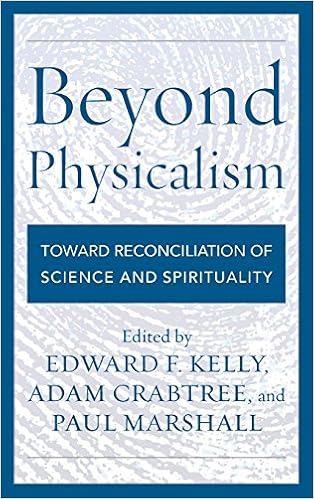Kelly writes in the opening chapter: "Our a priori commitment to conventional physicalist accounts of the mind has rendered us systematically incapable of dealing adequately with the mind's most central properties. We need to rethink that commitment." He draws comparisons with the field of classical physics, which had to be substantially rethought to make room for the more fundamental realities of quantum mechanics.
One of the things I like very much about these essays is that they show that the word 'science' describes a method, not a subject. These are intellectually serious people grappling with outlying data rather than dismissing it as 'impossible' and therefore not worth study.
The fringes interest me. I also find, from what previously I've read, physicalist accounts (perhaps I should say 'attempts to account') for consciousness deeply unconvincing. Personally, I lean toward what Beyond Physicalism describes as panentheism, and a view expressed, rather poetically, by Williams James in his last published essay:
. . . we with our lives are like islands in the sea, or like trees in the forest. The maple and pine may whisper to each other with their leaves . . . But the trees also commingle their roots in the darkness underground, and the islands also hang together through the ocean's bottom. Just so there is a continuum of cosmic consciousness, against which our individuality builds but accidental fences . . .
- "Confidences of a 'Psychical Researcher' in The American Magazine, Vol. 68 (1909), p. 589

No comments:
Post a Comment